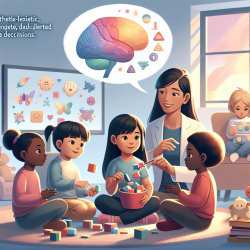Introduction
The complexities of providing effective therapy to undocumented immigrants, particularly children, demand a high level of cultural competence and sensitivity. The research article "Living in the Shadows: Plight of the Undocumented" by Verdeli and Aranda (2016) offers critical insights that can enhance the skills of practitioners working in this challenging field. This blog explores key takeaways from the research and suggests ways practitioners can improve their services by implementing these findings.
Understanding the Context
Undocumented immigrants, especially unaccompanied children, face numerous challenges, including trauma from their journey, cultural dislocation, and legal uncertainties. The research highlights the importance of understanding these contexts to provide effective therapeutic interventions. Practitioners must be aware of the socio-political climate and its impact on the mental health of these individuals.
Importance of Cultural Competence
The article emphasizes the necessity for cultural competence in assessments and interventions. Practitioners should:
- Be familiar with the cultural backgrounds and specific challenges faced by undocumented immigrants.
- Use culturally sensitive and validated assessment tools.
- Recognize their own cultural biases and limitations.
Developing these skills is crucial for delivering effective therapy and achieving positive outcomes for children.
Implementing Multicultural Assessments
The research outlines the pitfalls of inadequate multicultural assessments, which can lead to misdiagnosis and ineffective treatment. Practitioners are encouraged to:
- Employ a comprehensive approach that considers the individual's cultural, social, and legal context.
- Distinguish between primary and secondary traumas experienced by the individual.
- Adapt assessment tools to be culturally relevant and appropriate.
By implementing these strategies, practitioners can improve the accuracy and effectiveness of their assessments.
Role of Continuous Education and Training
The journey towards cultural competence is ongoing. Practitioners should engage in continuous education and training to stay informed about the latest research and best practices. This includes:
- Participating in workshops and seminars focused on multicultural competence.
- Engaging with research and literature on immigration and cultural diversity.
- Collaborating with colleagues and experts in the field to share knowledge and experiences.
Conclusion
Working with undocumented immigrants, particularly children, requires a nuanced understanding of their unique challenges and needs. By embracing the insights from "Living in the Shadows: Plight of the Undocumented," practitioners can enhance their skills and provide more effective, culturally competent care. This not only improves outcomes for children but also enriches the professional practice of speech-language pathologists.
To read the original research paper, please follow this link: Living in the Shadows: Plight of the Undocumented.










